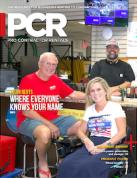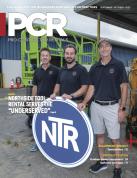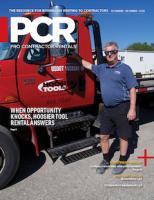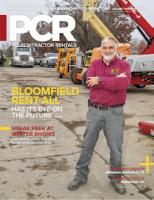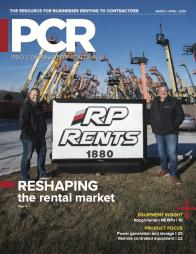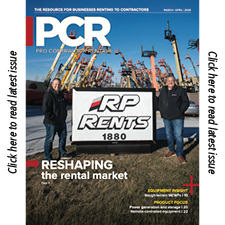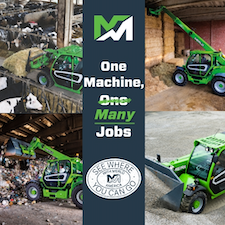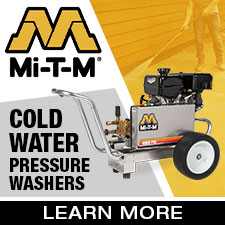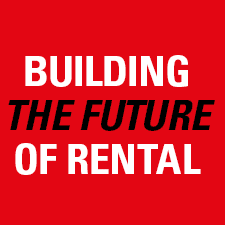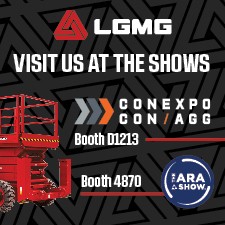Service Tips: Hybrid aerial equipment maintenance
Hybrid power system maintenance is not difficult as some technicians may think.
by Zach Gilmor
Power systems for mobile elevating work platforms (MEWPs) continue to evolve, just like the machines they drive.
As technology has advanced, so have engine options and designs. More stringent emissions regulations have mostly shelved simple, mechanical engine designs in favor of equipping MEWPs with engine technology that reduces emissions.
Another approach to meeting these regulations is to utilize a hybrid powertrain. A well-designed hybrid powertrain results in a more efficient and intelligent machine that can be just as simple to operate and service as traditional machines. These features and benefits have created an increasing demand globally for robust hybrid solutions.
The idea and purpose of hybrid machines have not really changed since their introduction, but the execution of these machines has evolved significantly along with the technology that powers them.
Many of today’s hybrid MEWPs can offer the flexibility to be dropped onto an unimproved job site before a structure is built and then move indoors for finish work. This flexibility is what makes owning and operating these machines so attractive for rental stores and contractors. Plus, many rental owners of hybrid equipment are also realizing the total cost of ownership (TCO) benefits that come from a well-designed hybrid system.
But, saying the word “hybrid” can create anxiety in service technicians who are more familiar with diesel-powered machines.
Admittedly, at the surface, the overall design concept of today’s hybrid aerial equipment, which is aimed at powerful performance with a smaller engine, may seem counterintuitive. However, digging a little deeper into the individual machine components, service technicians will notice many similarities to diesel- and electric-powered counterparts, finding them to be simple machines to maintain. Service technicians will also notice some components that even reduce the need for maintenance.
Hybrid system maintenance
Today’s hybrid equipment design and technology is fundamentally based on electric machines.
For example, on Genie FE (fuel-electric) hybrid MEWPs, the drive systems and controls come from Genie’s electric rough-terrain scissor lifts and the simple, mechanically controlled engines are taken from smaller Genie boom lifts.
Because of the commonality of components, the similarities between hybrid and diesel-powered lifts include basic engine and hydraulic system maintenance, such as regular checks and changing of engine oil, filters, hoses per the manufacturer’s recommended guidelines.
Like electric-powered lifts, hybrid models need routine battery maintenance and electrical component inspections as prescribed in the manufacturer’s recommended guidelines.
Because much of the equipment in today’s aerial and rental fleets are electric machines, service technicians are often more familiar with the internal make-up and components of electric machines compared with diesel machines, which makes routine maintenance tasks on hybrid equipment less daunting.
It is important to note that a very small number of new components — for example, the hybrid system clutch — are specific to hybrid units; however, none of these components require any special maintenance as long as owners and operators are following the manufacturer’s recommended guidelines for safe use and preventive care of these MEWPs.
Charging system maintenance
Aside from regular inspection and routine checks of a MEWP’s electrical connections and wiring per the manufacturer’s specifications, often no other maintenance is required on a hybrid machine’s charging system.
Even Absorbent Glass Mat (AGM) batteries, which are standard on all Genie FE hybrid models, are sealed and maintenance-free. Genie designers chose AGM batteries for its hybrid solution, in part, because they do not require the added maintenance for checking and topping off the flooded lead-acid batteries found on other hybrid and electric models, which further reduces shop time. These batteries are not proprietary to Genie, so they are easy to find in the event maintenance is required, which saves money.
Drive system maintenance
Like maintenance checks on the hybrid system, regular maintenance of hybrid MEWPs’ drive systems is very similar to diesel-powered machines. For instance, hub maintenance is essentially equivalent between the two types of machines, and inspections of electrical wiring and connections typically replace those of hydraulic motors and lines on diesel machines.
Special maintenance considerations
Not all hybrids are created equal. That said, as Genie was designing its FE hybrid technology, ease of service was one of the most significant requirements from customers.
Responding to that need, the Genie FE hybrid system was designed around existing technology and packaged in a new way. That means service technicians already have the skills and equipment necessary to service these hybrid MEWPs.
In addition, today’s MEWPs are now intelligent enough to assist technicians with troubleshooting. Features such as a platform display that display fault codes, ease sensor calibrations and set software options contribute to this hybrid system’s reputation in the field of being easy to service and maintain.
Commit to maintenance
The good operating condition and extended life expectancy of any MEWP — diesel-, electric- or hybrid-powered — is largely influenced by regular care and maintenance. Preventive maintenance is a commitment.
With increasing numbers of hybrid MEWPs showing up on job sites, admittedly, at the surface, today’s hybrid technology can offer a revolutionary approach in machine concept and design, increasing application versatility without sacrificing power or productivity, to traditional power options.
But digging down into the design details of these modern hybrid systems, services technicians will find that these systems are built with many of the same components as existing diesel and electric powered machines, plus include components that actually help to minimize maintenance and reduce time in the shop — all good reasons to shake the hybrid anxiety and keep these versatile machines in rental fleets.
Zach Gilmor is a Genie product manager at Terex AWP.
This article appeared in the January-February 2020 issue of Pro Contractor Rentals magazine. © 2020 Urbain Communications LLC. All rights reserved.




